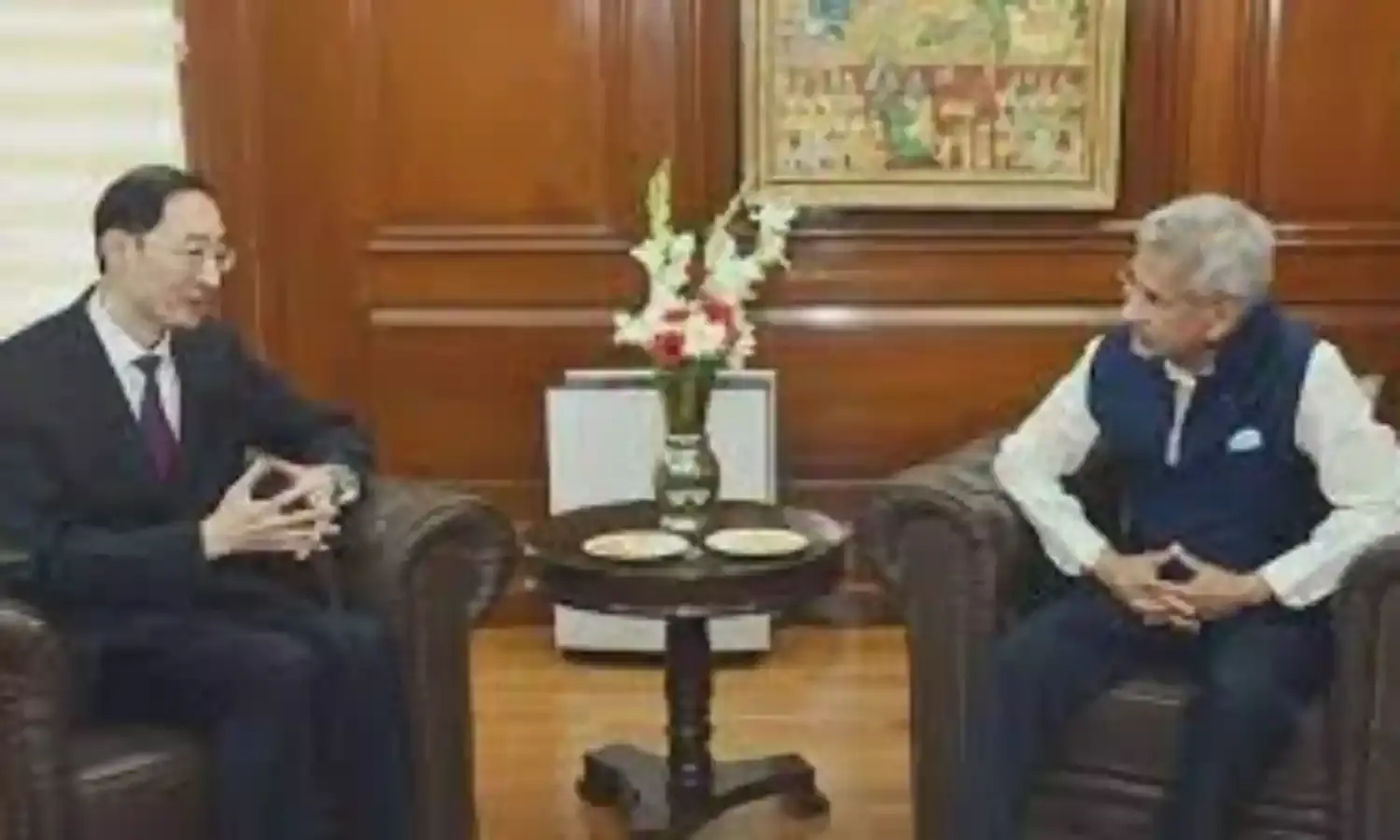Jaishankar Made Beijing's Day
What the Minister did not say was more significant than what he said to the departing Chinese envoy

Sun Weidong, China's ambassador who is returning to Beijing, surely did not expect the Indian External Affairs Minister, S. Jaishankar, to crown his stint in New Delhi with an Indian policy turn that the Xi Jinping regime had long hoped for but could not in its wildest dreams have imagined would be gifted to it on a platter, on an unmemorable occasion, and without China having to pay a price for it.
As far as the Chinese government is concerned, what Jaishankar did not say — which in this case is far more significant than what he, in fact, said, removes all the hurdles to normalization of bilateral relations that were stuck in the glitch created by the Chinese People's Liberation Army's (PLA) surreptitious takeover in recent years of over 1,000 sq kms of Indian territory in eastern Ladakh, mostly in the Depsang Plains.
In an otherwise protocol dictated meeting on October 25 in which a departing foreign envoy is bid farewell by the host foreign minister, the sort of event in which nothing of import usually ever happens, Jaishankar made Sun's and Beijing's day!
So, what did Jaishankar not say that may have bad consequences? According to media reports, the Indian foreign minister emphasized that normalcy would return to bilateral relations on the basis of "peace and tranquility" being re-established in the disputed border regions. There was no hint anywhere of Jaishankar forcefully iterating the specific condition India has so far insisted on — restoration of the status quo ante! And even if he did mention it in passing, not making a hoo-ha about it is just as revealing.
It is very likely the absence of this phrase or its emphatic repetition, will be interpreted by Beijing to mean that New Delhi has accepted China's grabbing of vast tracts of Ladakhi real estate as a fait accompli. One can expect Sun to have sent a note to Zhongnanhai mentioning this Indian concession, something Chinese interlocutors in the future will bring up as a principle-setting precedent to dismiss the notion of restoring to India its territory, and to make the point that the two countries should put the unpleasantness of PLA-initiated hostilites in eastern Ladakh behind them, and get on with the business of the Indian consumer doing what he is good at, namely, buying plenty of Chinese goods and manufactures to keep Chinese industries humming and making an already prosperous China wealthier.
Even as Sino-Indian tensions were asimmer, Chinese exports to India of capital machinery and intermediate goods (such as pharmaceutical ingredients) this year surged to a record high of nearly $90 billion even as Indian exports to China shrank by 36.4% and the balance of payments got further skewed. In the current two-way trade of some $125 billion, India's take was a little more than $25 billion. It is a one-sided wealth-transfer trend the Modi government has done next to nothing to reverse.
Defence Minister Rajnath Singh the other day talked of completing what he called the "Kashmir mission" in the foreseeable future of taking back Pakistan-occupied Gilgit and Baltistan. He justified it in terms of a Parliamentary Resolution. Curiously, Parliament's 1962 Resolution, still standing, that requires the Indian government to fight and to do whatever else is necessary to recover "every inch of Indian territory" lost to China since before the 1962 War, is conveniently forgotten by the Modi regime.
Annexation of Indian territory began, it may be recalled, with parts of Aksai Chin through which the Chinese built the Xinjiang Highway amalgamated into Chinese-occupied Tibet that the Indian government became aware of only in 1958! Prime Minister Jawaharlal Nehru had rationalised India's ignorance of such offensive Chinese carryings-on by saying it involved land "on which not even a blade of grass grew".
A similar appeasement-minded outlook appears to be congealing around the need to cut deals with Xi's China that will, unfortunately, allow the Indian government formally to accept a China that is territorially expanding at India's expense, but free up strategic policy space and resources to, presumably, belabour Pakistan!
One is not sure what to make of the Modi government's obsession with reducing an already much reduced Pakistan. No country is more seriously tanking financially, politically and socially than Pakistan. Any dim-witted politician would take to heart Napoleon Bonaparte's advice to not interfere when an adversary is making mistake after mistake, seemingly intent on taking himself down. With General Qamar Javed Bajwa apparently serious about detaching the Pakistan army from the snakepit that is Pakistani politics, but Imran Khan, disqualified from fighting elections on corruption grounds, just as focussed on bringing matters to a head with his underway "long march" on Islamabad with its potential for exacerbating domestic fissures and faultlines to the point of endangering the Pakistani state, that country is in for a rough ride.
It is a situation, Imran expects, will compel the Pakistan army to either takeover the reins of power for another round of martial law rule, or comply with his demand to dislodge the Muslim League (Nawaz) government of Shahbaz Sharif and order elections which, he expects, his Pakistan Tehreek-e-Insaaf party to win. Any which way this mess gets sorted out, Imran is confident he won't lose.
The only thing guaranteed to get the warring elements within the Pakistani nation to forget their differences are revelations of actions by the Modi-Doval-Jaishankar trio to weaken Pakistan. (In this respect, India's squeak-by win in the T-20 World Cup opener in Melbourne hasn't helped!). So, stand down!
Cover Photograph: Outgoing Chinese envoy calls on Union Minister of External Affairs.



